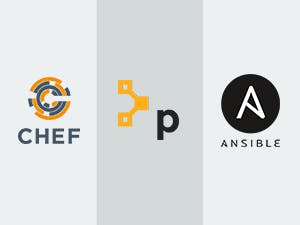The debate over the Flutter vs. React Native cross-platform mobile app development frameworks has been raging since their denouement in 2015. In one sense, it’s a classic Battle of the Giants. In one corner is Facebook with its contender, React Native; in the other is Google, represented by Flutter. Whether you’re a Google or a Facebook fan, the most critical question is: which provides the greatest business benefit and the best ROI? This white paper gives you a solid basis for comparing these two giants.
The Difference Between Cross-Platform and Native Development
When developing a mobile app, "cross-platform" and "native" refer to different approaches and technologies used in the development process. Native app development involves creating an application for a particular platform, such as iOS or Android, using the platform's native programming languages and tools. For example, developing a native iOS app would involve Swift or Objective-C, while a native Android app might use Java or Kotlin. Native apps directly access the device's features and capabilities, resulting in high performance and a seamless user experience. However, developing native apps for multiple platforms requires separate codebases and can be time-consuming and costly.
On the other hand, cross-platform app development involves creating a single codebase that can be deployed across multiple platforms. This is achieved by using frameworks like React Native or Flutter, which allow developers to write code once and deploy it on different platforms. Cross-platform apps can save development time and cost by sharing a common codebase. Still, they may not have the same level of performance or access to certain platform-specific features as native apps.

In this white paper, we focus on React Native and Flutter, both being cross-platform development frameworks.
Why Discuss React Native and Flutter?
When discussing cross-platform mobile app development, it makes sense to cover React Native and Flutter due to their popularity, community support, and widespread adoption in the industry. React Native, developed by Facebook, is known for its ability to create native-like apps using JavaScript. It has a large and active community, extensive documentation, and a vast ecosystem of pre-built components and libraries. Many well-known apps, including Facebook, Instagram, and Airbnb, have been built using React Native, making it a highly regarded framework in the mobile development space.
Similarly, Flutter, developed by Google, has gained significant traction as a powerful cross-platform framework. Flutter uses the Dart programming language to build visually appealing and high-performance apps. It provides a rich set of UI components, known as widgets, and offers a hot reload feature, enabling developers to see instant changes during the development process. Flutter has gained popularity for its fast development cycles, excellent performance, and ability to create beautiful and consistent user interfaces across multiple platforms.
There are several other less popular cross-platform development frameworks available. These include Kotlin Multiplatform Mobile, Ionic, NativeScript, and Xamarin. However, these have not yet achieved the same popularity or widespread adoption as React Native and Flutter. Further, from May 1, 2024, Microsoft has completely stopped maintaining Xamarin, its mobile app cross-platform development platform.
For more information please see our white paper "Life After Xamarin - Xamarin to .NET MAUI Migration"
In this white paper, you learn about why you might choose cross-platform over native development, as well as the description, history, and underlying technology of React Native and Flutter.
The extensive list of detailed areas of comparison includes:
- Development
- Performance
- Design/Graphics
- Quality Controls
- Release
- Code Reusability
- Community Support
- Integration with Native Code
- Popularity and Industry Adoption
- CI-CD Support
- Third-Party Integration
- Documentation
- Maintenance
- Popular Apps
- Migration from Native to Cross
Final Thoughts
We encourage you to get informed by downloading these two white papers:
- Download the "Flutter vs. React Native: Which Mobile Cross-Platform Framework Gives You the Best ROI?" white paper by filling in the form above
- Download the "Life After Xamarin - Xamarin to .NET MAUI Migration" white paper by clicking on this link.
You will receive solid advice as to which platform to use under which circumstances. Get a head start in mobile app development and download these white papers today!



